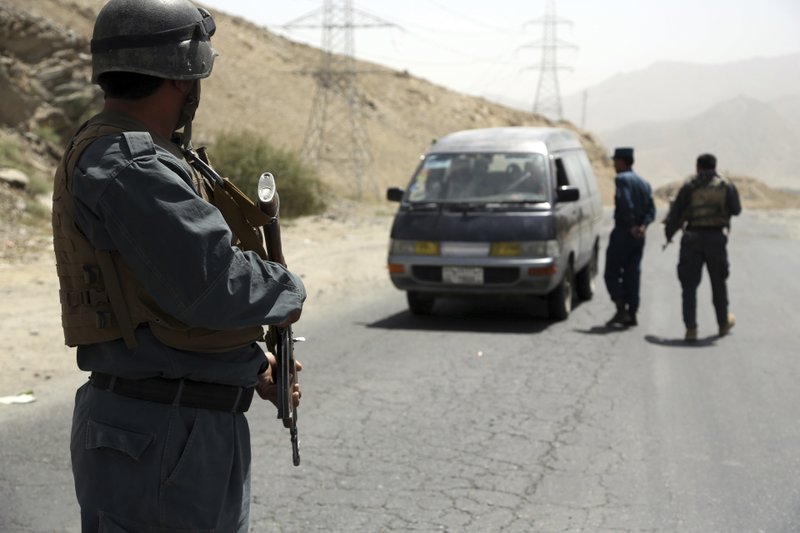Afghan Taliban cancel peace talks with US citing 'agenda disagreement'
- Peace talks with US had been set for Wednesday
- Militants reject requests to meet "puppet" Afghan government
- Disagreement over ceasefire and prisoner exchange
PESHAWAR: The Afghan Taliban said on Tuesday they had called off peace talks with US officials in Qatar this week due to an "agenda disagreement", especially over the involvement of Afghan officials as well as a possible ceasefire and prisoner exchange.
Two days of peace talks had been set to start on Wednesday, Taliban officials told Reuters earlier, but the hardline Islamic militant group had refused to allow "puppet" Afghan officials to join.
The US ambassador to Kabul, John Bass, tweeted that reports of US-Taliban talks on Wednesday were "inaccurate" and added: "Taliban should talk to fellow Afghans as much as they talk to media."
A separate tweet from the US embassy in the Afghan capital stressed that intra-Afghan talks were "essential" to settling the conflict.
The State Department later announced that US Special Representative for Afghanistan Reconciliation Zalmay Khalilzad would lead an interagency delegation to India, China, Afghanistan, and Pakistan from Jan. 8–21 that would meet senior government officials in each country "to facilitate an intra-Afghan political settlement".
It said Khalilzad continued to coordinate his efforts with Afghan President Ashraf Ghani, Chief Executive Abdullah Abdullah, and other Afghan stakeholders.
"The US goal is to promote dialogue among Afghans about how to end the conflict, and to encourage the parties to come together at the negotiating table to reach a political settlement," the statement said.
The war in Afghanistan is America's longest overseas military intervention. It has cost Washington nearly $1 trillion and killed tens of thousands of people.
Reports last month about US President Donald Trump's plans to withdraw thousands of troops from Afghanistan triggered uncertainty in Kabul, which depends on the United States and other foreign powers for military support and training.
A Taliban source told Reuters that US officials had insisted that the Taliban should meet Afghan officials in Qatar and said "both sides were in disagreement over declaring a ceasefire in 2019."
"Both sides have agreed to not meet in Qatar," he added.
Taliban spokesman Zabihullah Mujahid said earlier that the two sides were still working on the technical details and were not clear on the agenda for the talks.
A Taliban leader had told Reuters that the talks, which would have been the fourth round with Khalilzad, would have involved a US withdrawal, prisoner exchange and the lifting of a ban on movement of Taliban leaders.
Taliban sources said that they had demanded that US authorities release 25,000 prisoners and they would free 3,000, but that US officials were not keen to discuss the exchange at this stage.
"We would never announce any ceasefire until and unless we achieve major gains on the ground. We have the feeling that Zalmay Khalilzad doesn't have enough power to make important decisions," another Taliban official said.
The Taliban have rejected repeated requests from regional powers to allow Afghan officials to take part in the talks, insisting that the United States is their main adversary.
The insurgents, seeking to reimpose strict Islamic law after their 2001 ouster by US-led troops, called off a meeting with US officials in Saudi Arabia this week because of Riyadh's insistence involving the Afghan government.
The United States sent troops to Afghanistan after the September 11, 2001, attacks on New York and Washington. At its peak the US deployment involved more than 100,000 troops, but Washington withdrew most in 2014 and now has around 14,000 troops in the country as part of a NATO-led mission aiding Afghan security forces and hunting militants.
As peace talks gained momentum a draft agreement drawn up by the influential US think tank RAND Corporation outlining the clauses for a potential peace deal was circulated among Afghan officials and diplomats in Kabul.
The document, reviewed by Reuters, suggests that the United States and NATO withdraw their military missions in phases over an expected period of 18 months. It adds that the United States may continue providing civilian assistance.
The US embassy tweet said RAND’s work was independent of the US government and did not represent US policy.






